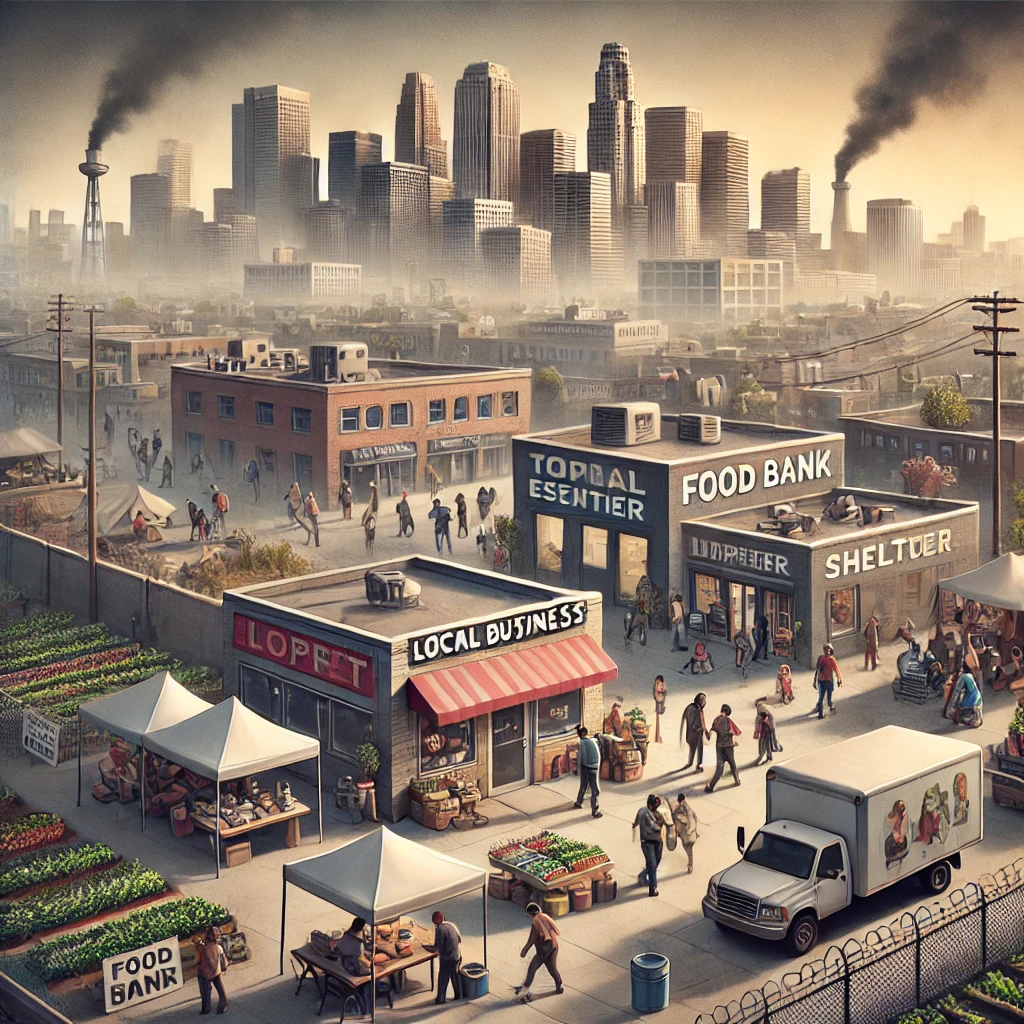When global conflict looms large, cities are thrust into a precarious position where the survival of their local economies becomes paramount. World War 3, or any large-scale disruption, would place immense stress on small businesses, strain public services, and widen the gap for vulnerable populations. In such moments, cities must become lifelines, creating economic safety nets while fostering the resilience needed for recovery.
The health of a local economy during a crisis hinges on the survival of small businesses. These are the cornerstones of communities, providing goods, services, and jobs that sustain daily life. Yet small businesses are often the first casualties when supply chains break down, inflation rises, or consumer confidence falters. A city’s immediate responsibility must be to support these businesses through targeted interventions.
One essential strategy is the creation of emergency financial relief programs. Cities should allocate contingency funds to provide grants or low-interest loans for small businesses facing disruption. These funds can cover essentials like rent, payroll, and inventory to keep businesses afloat during uncertain times. Equally important is streamlining access to these resources. Overly complex application processes only exacerbate the struggles of business owners already under pressure.
Cities must also focus on workforce adaptability. A global conflict often reshapes demand for labor, making some industries vital while rendering others less relevant. Investing in training programs allows workers to pivot into emerging sectors like logistics, healthcare, or technology, which often thrive in times of crisis. For example, programs that teach digital skills can empower workers to transition into remote roles or support industries critical to resilience.
Supporting vulnerable populations is equally critical. Crises amplify existing inequalities, leaving marginalized communities disproportionately affected. Cities must prioritize equitable policies, such as housing support for those displaced by economic instability or conflict. Rent freezes, subsidies, and expanded access to shelters can prevent a housing crisis from compounding other challenges. Food security programs, including the expansion of food banks or community kitchens, are essential to ensure no one goes hungry.
Public-private partnerships are another powerful tool. Local governments and businesses must collaborate to maintain economic stability. For example, a city can work with local grocery stores to create systems that ensure the steady distribution of goods, even when supply chains are disrupted. Similarly, partnerships with financial institutions can establish emergency credit lines or waive fees for small businesses and struggling residents.
Beyond immediate relief, cities must foster long-term economic resilience. This begins with nurturing trust and collaboration within the community. Transparent communication from city leaders reassures residents and businesses, reducing panic and encouraging collective action. Hosting regular town halls or digital forums allows for the exchange of ideas and keeps stakeholders informed about ongoing measures.
Infrastructure plays a role here too. Digital platforms can connect local businesses with customers, even during physical disruptions. For instance, cities could facilitate the creation of online marketplaces where small businesses can sell directly to local residents. Such initiatives not only mitigate the impact of crises but also lay the groundwork for a stronger post-crisis economy.
Resilience extends to mental health and community well-being. The stress of living under the shadow of war takes its toll on individuals and families. Cities can support their residents by expanding access to mental health services, organizing community activities, and promoting cultural events that foster solidarity. A connected and supported community weathers storms far better than one fractured by isolation and fear.
Leadership matters most during these moments. City officials must act decisively, with a clear focus on balancing immediate needs with long-term goals. Every policy decision must consider its impact on the economic and social fabric of the community, from small business relief to workforce training, from housing stability to mental health initiatives. The goal is not just to survive but to emerge stronger.
Tomorrow’s article will delve into the future, exploring how cities can prepare for recovery and growth while living through the uncertainty of war. It will examine the balance between crisis management and visionary leadership, offering strategies to help cities rise above the chaos. Stay tuned as we continue to build a roadmap for resilience in the face of unprecedented challenges.




Comments are closed